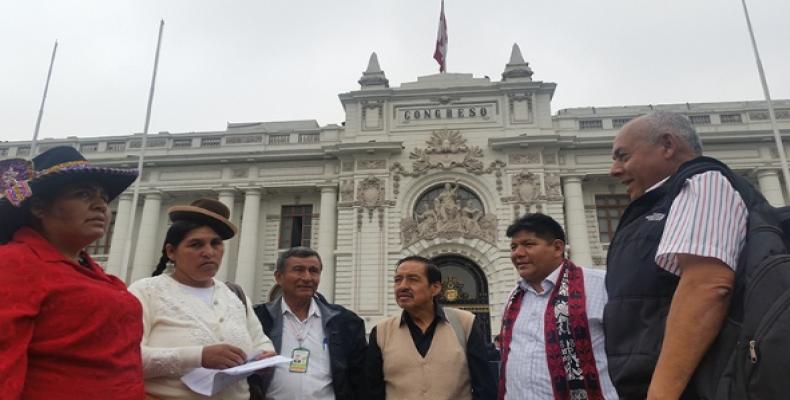Lima, May 28 (teleSUR-rhc)-- A general strike on Wednesday swept across six regions of southern Peru. The 48 hour strike will last until Thursday and is in solidarity with protests against the Tía María mining project in the Valley of Tambo, province of Islay in the Arequipa region.
The northern region of Cajamarca has also joined the general strike. Dozens of protesters have been arrested and at least four lives have been claimed since the Tía María conflict began.
Meanwhile, the UN Regional Office for Human Rights has called for a de-escalation of tensions. President Ollanta Humala has responded by deploying the army throughout the regions in which the general strike has been called.
The strike comes four days after President Ollanta Humala declared a State of Emergency in Islay, which is meant to last for 60 days. The emergency measures restrict citizens' rights to freedom of movement and assembly, and authorizes police to enter people’s houses without a warrant.
Several radio journalists have also accused the police of persecuting them and have fled the area where the state of emergency is in force. All schools in four regions – Arequipa, Cuzco, Puno and Moquegua –have been closed as a result of the strike. In the capital city of the region of Arequipa, additional peaceful marches also took place.
One of the march participants, Jesus Quito, explained that “we are experiencing a number of violations of human rights. They [officials] are entering houses, they are detaining the population, they are inflicting numerous atrocities. We call on the international community to speak up about what is happening in the Valley of Tambo.”
Congresswoman Claudia Coari from Dignity and Democracy stated that “if [the project] is not suspended, there will be more problems as the government is sending the police and the army. In that case, there will be more blood and more death. Nobody wants that. That is why we are alerting the president of the dangers with anticipation in this statement and in the [press] conferences.” Organizers of the protests are also considering expanding the strikes to other regions, as well as the possibility of continuing the strikes indefinitely.


